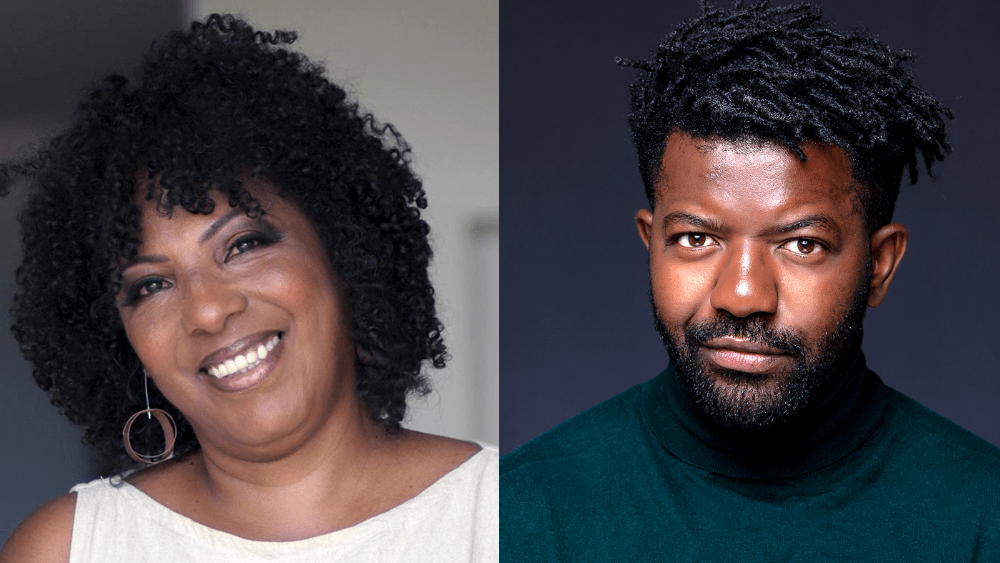Rafhael Barbosa’s upcoming animated feature “Utopia” has lined up lauded Brazilian actor Rejane Faria and French-Angolan anchor Matamba Joaquim. Faria starred in Gabriel Martins’s Sundance breakout “Mars One” and Anna Muylaert’s Berlinale entry “The Best Mother in the World,” while Joaquim starred in Alejandro Amenábar’s “The Captive.” The production also secured Anderson Mahanski, behind Netflix’s animated hit “Super Drags,” as animation director and associate producer.
“Utopia” has been selected as one of the pitching projects at Ventana Sur Animation!, the section of the prominent Buenos Aires market dedicated to promoting Latin American film and TV within the international scene.
The film, written by Barbosa alongside Werner Salles, is set in 1695 and sees a family of slaves organize a rebellion to flee in search of the utopian Quilombo dos Palmares following a call from the spiritual helm. The group travels a risky path to find the quilombo at the height of a great war. But the war is not the end.

“Utopia,” courtesy of La Ursa Cinematográfica
Speaking with Variety ahead of Ventana Sur, Barbosa highlights how the story is set in “the longest-lasting and most organized refuge for enslaved Africans outside of Africa.” “It’s a community that led the biggest resistance movement against slavery in Brazil. The film seeks not only to bring this narrative to contemporary audiences but also to reinterpret it from an Afro-futurist and Afro-surrealist perspective.”
Barbosa says the team has adopted a mix of techniques for “Utopia,” predominantly 2D cut-out animation. “However, the dreamlike layer of the script allows for experimentation with different styles. We constructed the characters’ dreams and visions with 2D frame-by-frame, in a more subjective and poetic style than the other layers of the story.” Amongst the references for the project are Brazilian Luiz Bolognesi’s Annecy winner “A Story of Love and Fury,” Mel Gibson’s “Apocalypto,” Rémi Bezançon and Jean-Christophe Lie’s “Zarafa” and, most notably, the Angolan animation “Nayola: In Search of My Ancestry” by José Miguel Ribeiro.
“One of the most elitist segments within an already elitist art form like cinema, animation has a notable deficit of Black professionals in its ranks,” adds the director. “One of the strengths of ‘Utopia’ is its commitment to mapping and bringing together a team of black animators around a strong project.”
Barbosa’s label La Ursa Cinematográfica is dedicated to original productions by emerging Black artists, with projects that bring contemporary approaches to Black stories to deconstruct stereotypes. It also focuses on changing the perception of Barbosa’s home state of Alagoas within both the national and international scenes. “We’re hoping to establish strong co-production partners in the upcoming years, as funds in Brazil have become more locally specific, allowing us to grow and expand our productions to compete on a global stage,” adds the director.
An emerging state, Alagoas is experiencing a buzzy momentum six decades after its most famous export, Cacá Diegues, became one of the founders of Brazil’s burgeoning Cinema Novo. This year, Alagoas had a historic presence at Cannes, with Stella Carneiro’s “The Cowgirl, the Showgirl and the Pig” playing Directors’ Fortnight, Ulisses Arthur’s “We Are Not Dreaming” selected for Goes to Cannes and Laís Araújo’s “Infantry” selected for the La Fabrique Cinéma program.

“Utopia,” courtesy of La Ursa Cinematográfica
La Ursa is a driving force in the region. Alongside Estúdio Núcleo Zero, it produced Barbosa’s “Cavalo,” the first feature film directed by a Black man and produced with public funding in the state. The label is currently working on another five features on top of “Utopia,” including Barbosa’s fantasy film “Look at Me,” which is in post-production, and Stella Carneiro’s feature debut “Daughters of the Mangrove.” La Ursa is also co-producing Werner Salles’s sci-fi feature “How to Set Up a Scene” with Estúdio Núcleo Zero.
“Utopia” is produced by La Ursa Cinematográfica in co-production with Estúdio Núcleo Zero and Grão Filmes. Producers are Adriana Pinto, Juliana Lemes, Júnia Matsuura and Felipe Guimarães, with Anderson Mahanski as an associate producer. The film was awarded the Guilherme Rogato Prize by the city of Maceió, receiving funds from Brazi’s federal Audiovisual Sector Fund (FSA/Ancine) for its production, as well as securing funding from the Paulo Gustavo Law, through the State of Alagoas in the Brazilian northeast.

